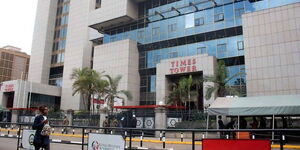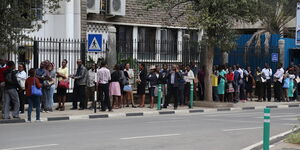After a period of expansion following the Covid-19 pandemic, Kenya's hospitality sector has settled into a new, stable phase.
According to the Kenya Market Update H1 2025 report by Knight Frank, the sector’s expansion has now stabilised to pre-pandemic levels.
This development marks a significant change from the hectic post-pandemic period, indicating a shift towards a more mature and sustainable market.
As noted in the report, the stabilisation is underpinned by sustained confidence from investors, suggesting that the current healthy performance is likely to be a long-term trend.
According to Knight Frank, the market has proven its resilience by balancing its momentum against broader economic factors. This is in contrast to other sectors, such as retail, which are facing challenges.
Performance Drivers
The positive performance is driven by a number of key factors, as highlighted in the report. These drivers are responsible for the return to a more predictable growth pattern.
One of the main drivers is the resurgence of business travel. As companies resume in-person meetings and conferences, hotels in Nairobi and other cities and towns are experiencing consistent demand.
Another crucial factor, the report says, is the strength of domestic tourism. It confirms that Kenyans continue to travel within the country, supporting resorts and safari lodges nationwide.
International visitors are also returning in large numbers. The growing number of tourists has played a key role in the sector’s recovery and stabilisation.
New UN Offices in Nairobi
The report also anticipates future growth drivers such as the establishment of the new United Nations headquarters in Nairobi.
The report anticipates that the new international offices will boost demand for premium housing and related services.
This influx of expatriates will offer a boost to the hospitality sector as they will require accommodations for both short and long-term stays, resulting in increased occupancy rates.












